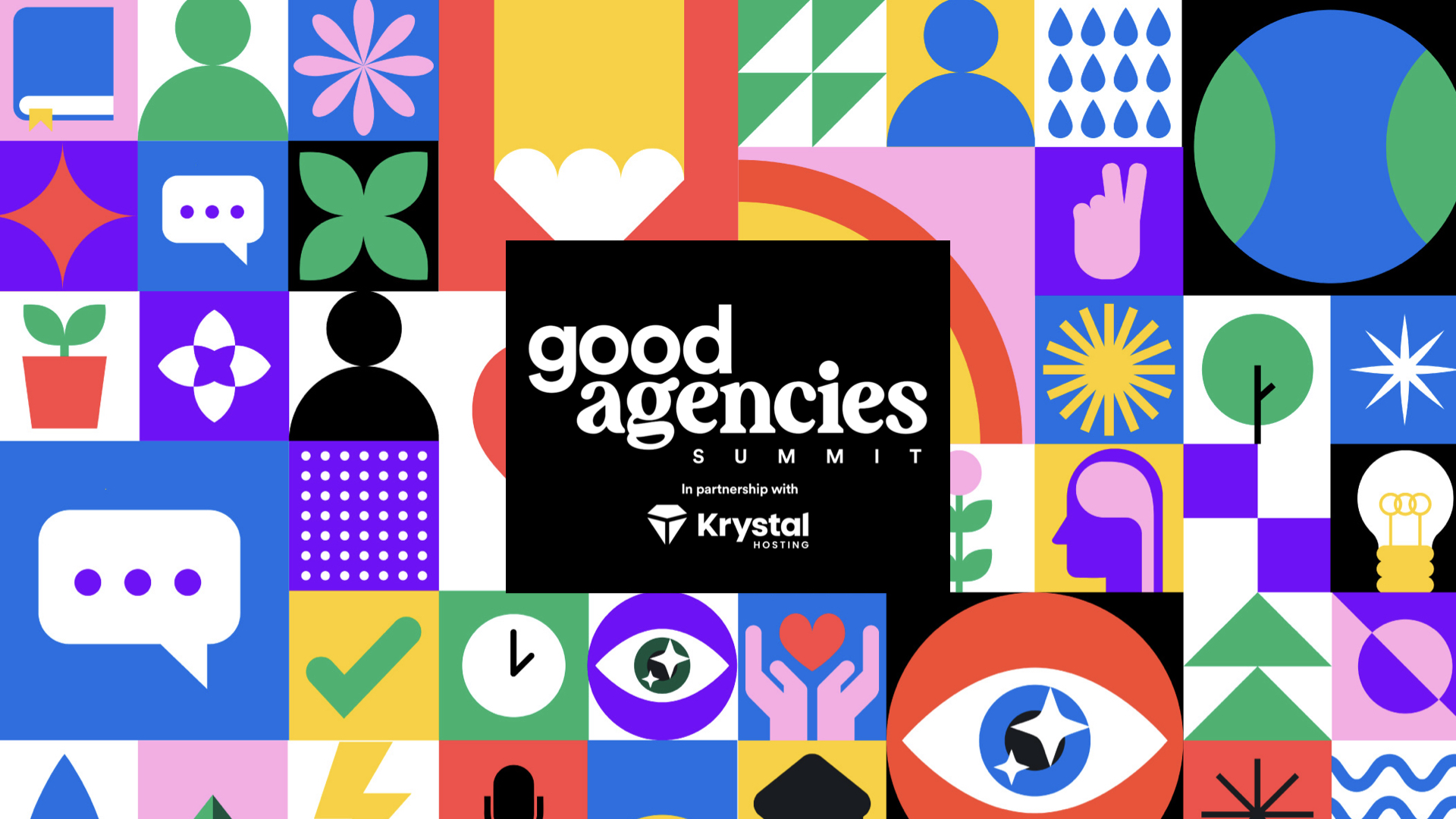Good Agencies Summit – Speaker Line-up
(The full shebang.)
You can access the event itinerary here.
KEYNOTE: Marketing Declares A Climate Emergency
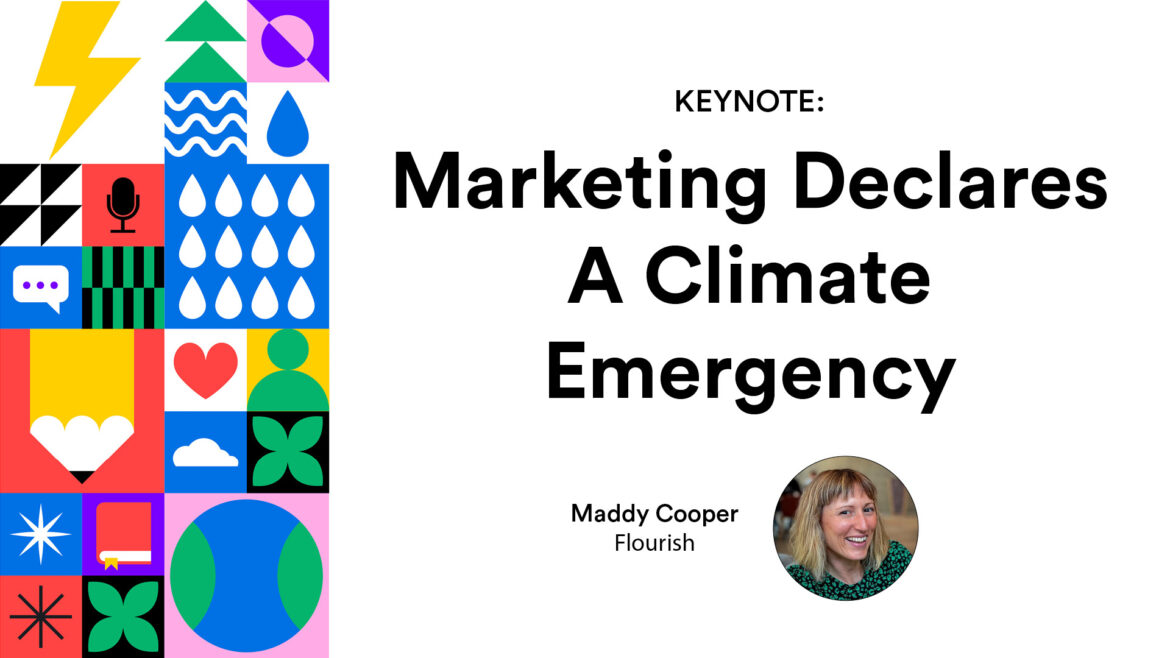
It’s funny how many agency leaders cite their children as their motivation for ‘going green’. You begin to question the choices you make in your day-to-day – what is your purpose for existing beyond making money?
Maddy Cooper, founder of sustainability specialist marketing agency Flourish, was confronted with this problem when she had her first child.
“It’s a classic. But if you look at the scale of flooding everywhere, and the communities across the planet that are losing homes and livelihoods – is it real that my children would really be able to live an abundant, happy, fulfilling life on this planet?”
Ever since then, environmental sustainability has been at the forefront of her mind. It impacts every decision she makes. It even led her to start a new sustainability marketing agency. And now, it’s led her to create a free tool kit for agencies who also want to join the fight for the planet.
It’s called ‘Marketing Declares’ and it’s essentially a cost-free guide for agencies to help them become more ethical and sustainable. There’s a whole array of advice in the toolkit, but Maddy emphasises two key features:
- Sustainable Marketing Compass: This helps you align your marketing activities with the UN sustainability goals.
- ‘Change The Brief’: “This is all about reducing carbon emissions through your supply chain. So challenging client briefs to make them more ethical and sustainable, and then considering not working with certain brands if they’re not on board. This guide can help you navigate those decisions with integrity so that you’re not losing your core values, and you have what it takes to be able to challenge a client in the right direction.”
For our Good Agencies keynote, Maddy will be taking you through how to use the ‘Marketing Declares’ guide to make your agency more sustainable, whilst still maintaining a profit. She’ll show you exactly what you can be doing differently in your agency to operate in service of protecting the planet – and how to encourage your clients to do the same.
What Is The Key To A Happy Team?
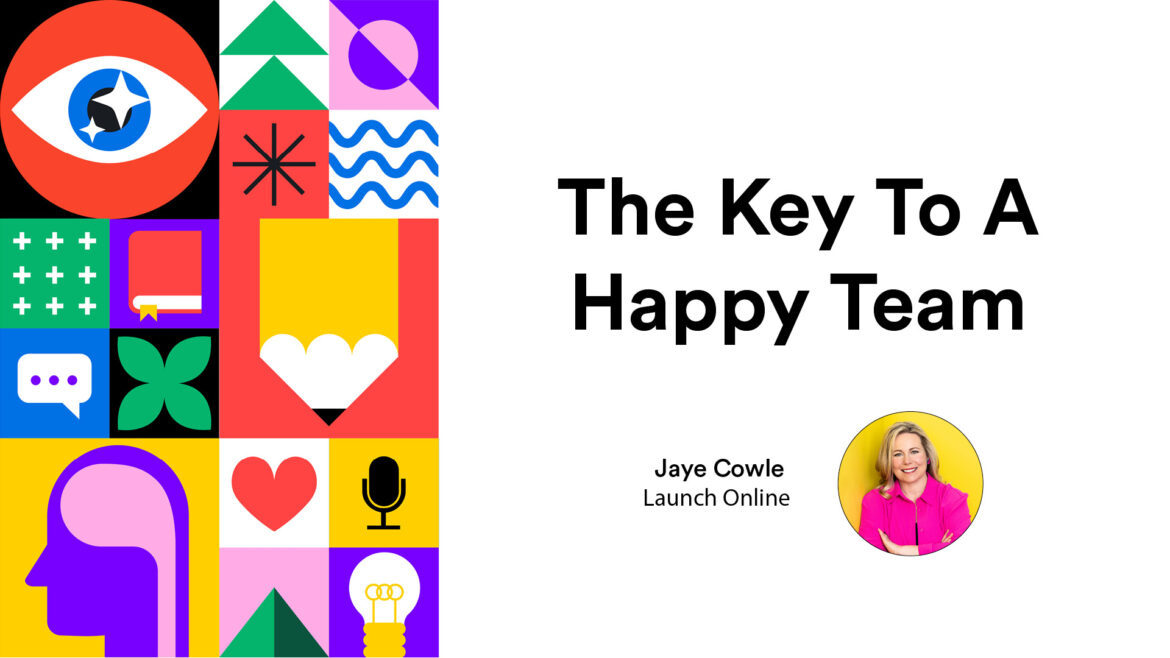
“If you feel stable, you’re more likely to push yourself out of your comfort zone. If you have instability at work, or that terrible feeling where you don’t entirely know whether you’re doing a good job or not, or don’t entirely know what’s expected from you, it impacts everything.”
Jaye Cowle is the CEO of Launch – known as the ‘happy performance agency’. Why the tagline? Jaye has set out from the very beginning to use her business to make others happy, whether that’s through great leadership, or top-notch paid media.
But around 18 months ago, Jaye decided to take her team’s wellbeing to the next level.
She came across Dan Pink’s autonomy mastery and purpose theory, and it transformed her perspective of happiness in the workplace.
“You have to be very careful that you don’t create a culture of toxic positivity, where people are frightened to not be happy,” she says. “Because it’s not about slapping a smile on your face, it is about creating a work environment that empowers people to bring their best selves.”
“Really, we’re striving for contentment, but the word ‘happy’ has much better PR connotations.”
In this session, Jaye will be taking us through how she keeps her team happy and motivated with a simple change of outlook – as well as how you can track and improve what she defines as the ‘happiness metrics’ of your agency.
How to Make Your Agency Accessible To All
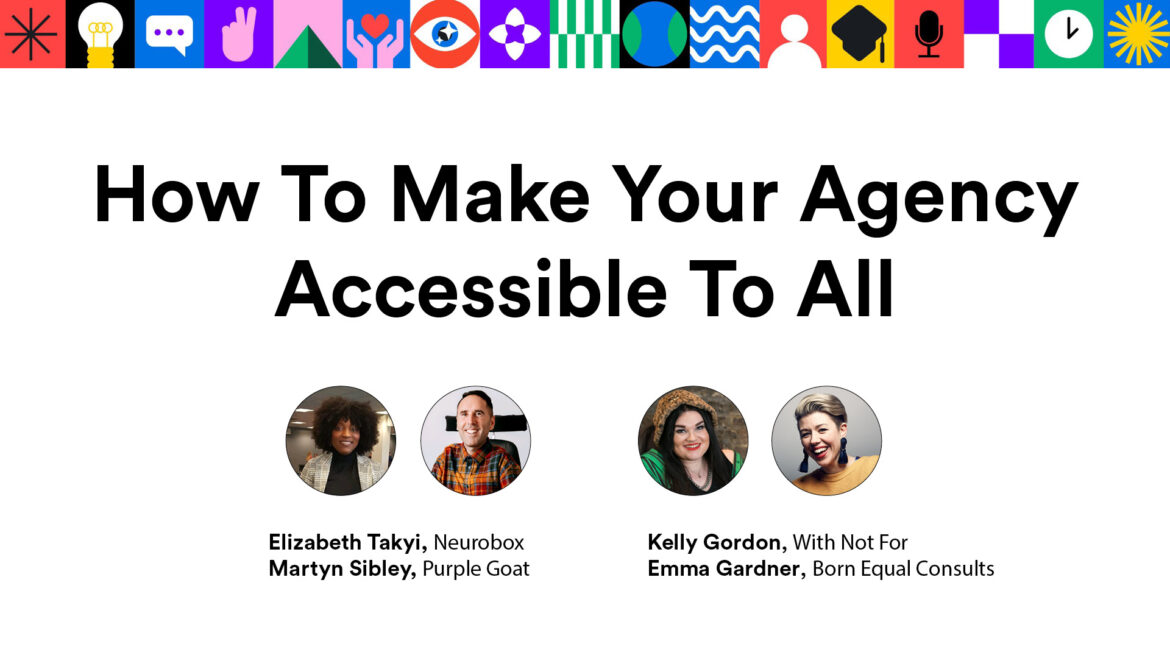
“If you have a building that’s inaccessible, it doesn’t mean you can’t start working with physically disabled people. Because guess what, we’re in the age of remote working – that’s accessible,” says Emma Gardner, founder of Born Equal Consults.
There’s no doubt that agencies lead the way when it comes to progressive workplace environments. But when it comes to being inclusive of disabled talent, there’s still a long way to go.
The neurodiversity discourse is new to the table, but there are a plethora of other disabilities, both visible and invisible, that are still not catered for – leaving a whole pool of talent completely untouched. Could you be missing out?
In this breakout session, we’re joined by Emma Gardner, Kelly Gordon and Martyn Sibley from With Not For – an organisation that helps place disabled talent in creative agencies and organisations – as well as neurobox ambassador Elizabeth Takyi.
Our panellists will be taking us through some of the ‘Dos and Don’ts’ that agencies should abide by when it comes to accessibility and disabled inclusivity – and dissecting their own experiences of discrimination to give you an understanding of the hidden pressures that disabled candidates often face.
Pro-Bono Work – Is It Worth The Hassle?
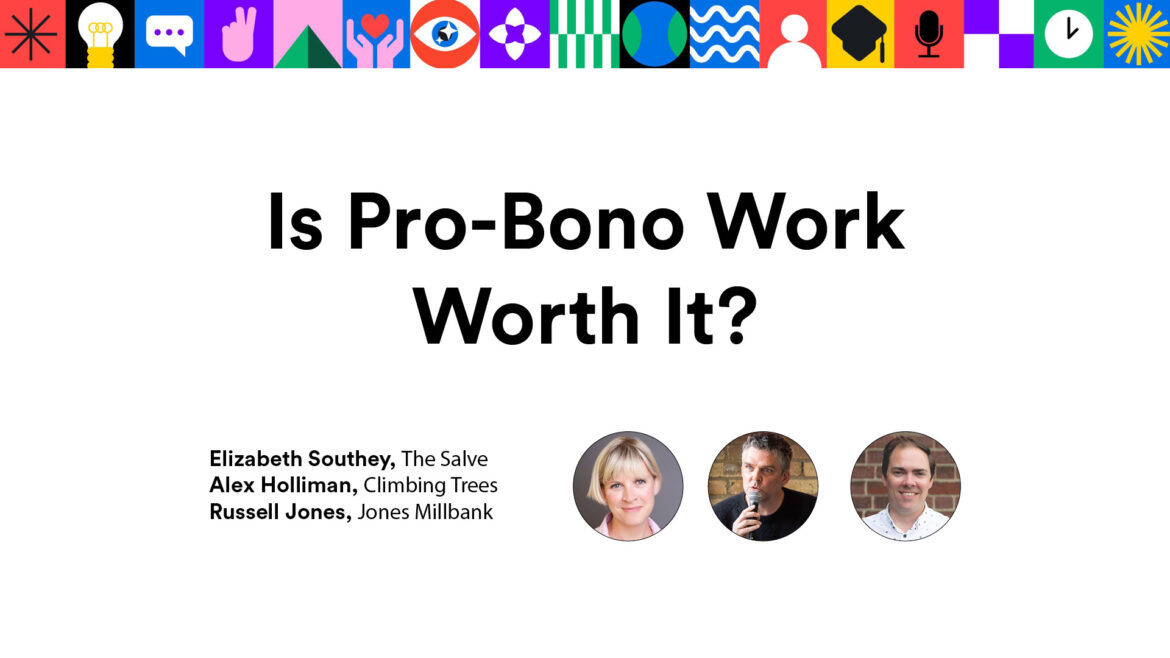
Pro-bono work seems like a no-brainer for most agencies at the start of their purpose journey – especially those who want to give back but don’t know where to start. But do the risks outweigh the rewards?
“When you’re trying to help people and give away stuff you charge others thousands for, it’s quite disheartening when they don’t respond to it. It always feels like, because it isn’t a cost they’re paying for, it’s never a high priority for them,” says one agency founder.
“Often when working for free or a discount, it’s valued at first then quickly gets forgotten,” says another. “I think where charities are concerned, they often have to graft to get things cheap and do things quickly, that little loyalty is placed on you when you do work for free.”
On the other hand, there are clear benefits to the pro-bono strategy. Often, you get complete creative control of projects, and the act itself can only do wonders for your agency’s reputation.
- “We do pro-bono work for people and organisations who don’t have the budgets, resources or requirements for what we do,” says one agency leader on the other side of this fence.
- “It helps with team training and development, allowing them to take on more senior roles that would ordinarily be too high risk for client work, and can help fill holes in our portfolio too.”
- “Agencies arguably should be doing pro-bono work… it’s no different to volunteering, and leveraging your craft is way more valuable than litter picking or planting saplings.”
Where do you sit?
In this breakout session, we’ll be posing the question: is pro-bono work worth the hassle? Come along to share your own two pence, and hear from agency leaders who have tried and tested this tactic – with varying results.
How Can Agencies Foster An Inclusive Culture That Feels Authentic?
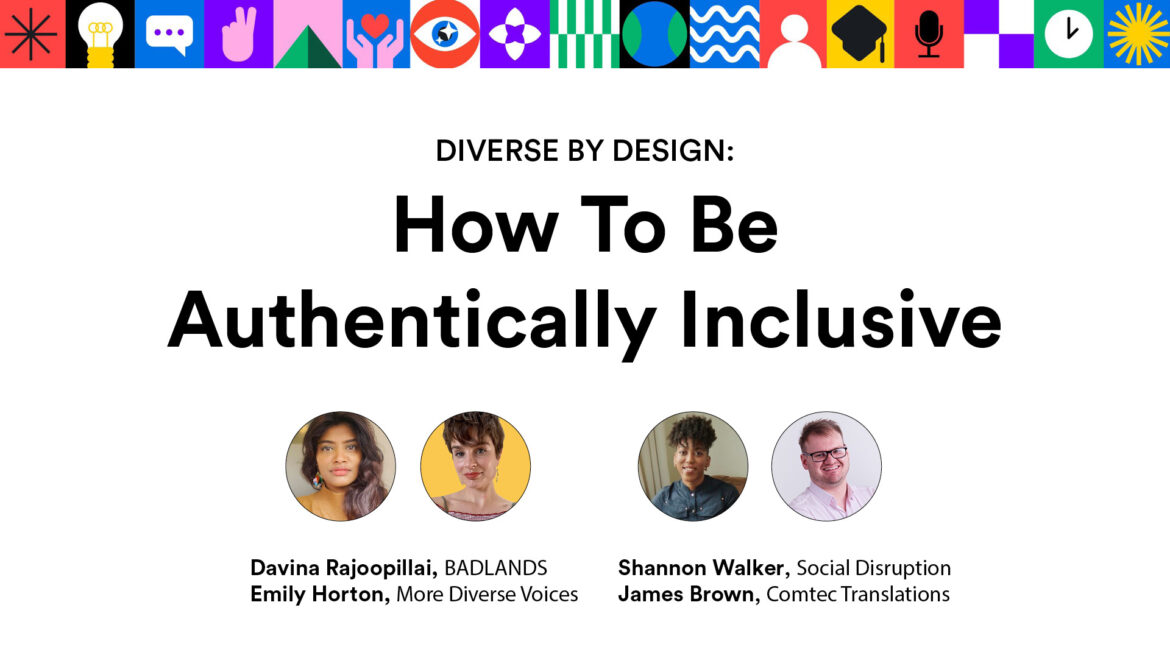
What strides are you making to improve diversity and inclusion in your agency?
When it comes to making a conscious effort on the D&I front, the job never ends. Most agency leaders understand that – but are unsure where on earth to begin with this kind of stuff. And, more importantly, how to do it authentically.
There is no right time to start,” says Davina Rajoopillai, founder of film and cultural content studio BADLANDS.
“It’s not your fault that these systemic issues are here, but you can be part of the solution. And we need you as leaders to drive positive change.”
Nowadays, diversity isn’t just a nice-to-have. It’s a must-have. And a truly diverse team can open up a whole bunch of benefits for your business.
Things like:
- Innovation. By bringing in new perspectives, you’ll get an influx of new ideas to work with. It also helps to avoid ‘groupthink’ – where people agree on things to maintain harmony (often at the expense of better solutions).
- Diversity. You get a wealth of experiences and backgrounds to help inform your projects. A diverse team can better understand a larger range of clients, and can also offer a wider array of solutions when confronted with a problem.
- Growth. Having a team full of people with different experiences and viewpoints helps your agency evolve and adapt more successfully over time. It also means your agency has a better understanding of different cultures and backgrounds, which can give you a competitive advantage.
But how can you foster an inclusive culture where nobody feels like the token diversity hire?
In this breakout session, we’ll be asking our panellists about how agencies can create an environment where diversity truly thrives – without the virtue-signalling and double standards – and how this mindset can begin to trickle into your creative projects. We’ll also be hearing from our D&I council leader – James Brown, head of commercial at Comtec Translations – who’ll share insights from the council’s report on D&I practices, as well as the things you can do to create change in your own agency.
If diversity is an area you’d like to improve on within your business, you don’t want to miss this.
Are You Missing Out on Talent Because of Unconscious Bias?
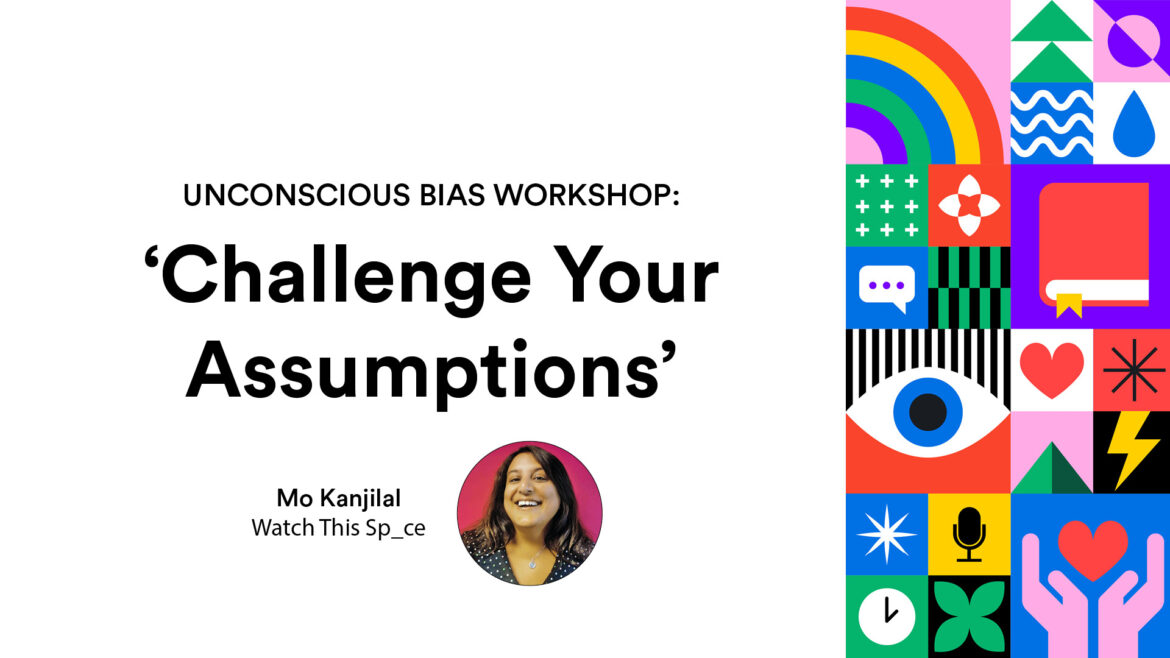
“We’re all biassed. We all are more naturally drawn to people who are like ourselves. But why does that matter?”
Mo Kanjilal is the founder of inclusion consultancy Watch This Sp_ce. She dedicates her time to helping businesses understand why inclusion matters and how to build a culture where diversity thrives.
But a big challenge Mo often faces is explaining to people why they should care.
“It’s actually quite a common scenario for us to be working with a CEO or leadership team and they’re not quite sure why this matters. But it does. It impacts your marketing, your profit, and your people.”
The most common area unconscious bias can cause problems within agencies is when it comes to recruitment:
- CV Screening. When reviewing CVs, hiring managers may unconsciously favour candidates with names, educational backgrounds, or work experiences that are familiar to them, which may not necessarily be the most qualified candidates.
- Interviews. Interviewers may ask different questions or evaluate responses differently based on unconscious biases. They might inadvertently give easier questions to certain candidates, or interpret responses from other candidates more critically.
- Groupthink: Unconscious bias can also lead to ‘groupthink’ in hiring committees – situations where everyone on the hiring panel shares similar biases, and therefore may agree on hiring decisions that may not be totally fair.
In this workshop session, you’ll be uncovering your own ‘unconscious’ biases. Mo will help you understand how these biases can affect your business and why it’s important to acknowledge them, with some practical tips on what to do next.
If you’re striving for better diversity and inclusivity within your agency, this is a great place to start.
How Do You Cope with Stressful Agency Life?
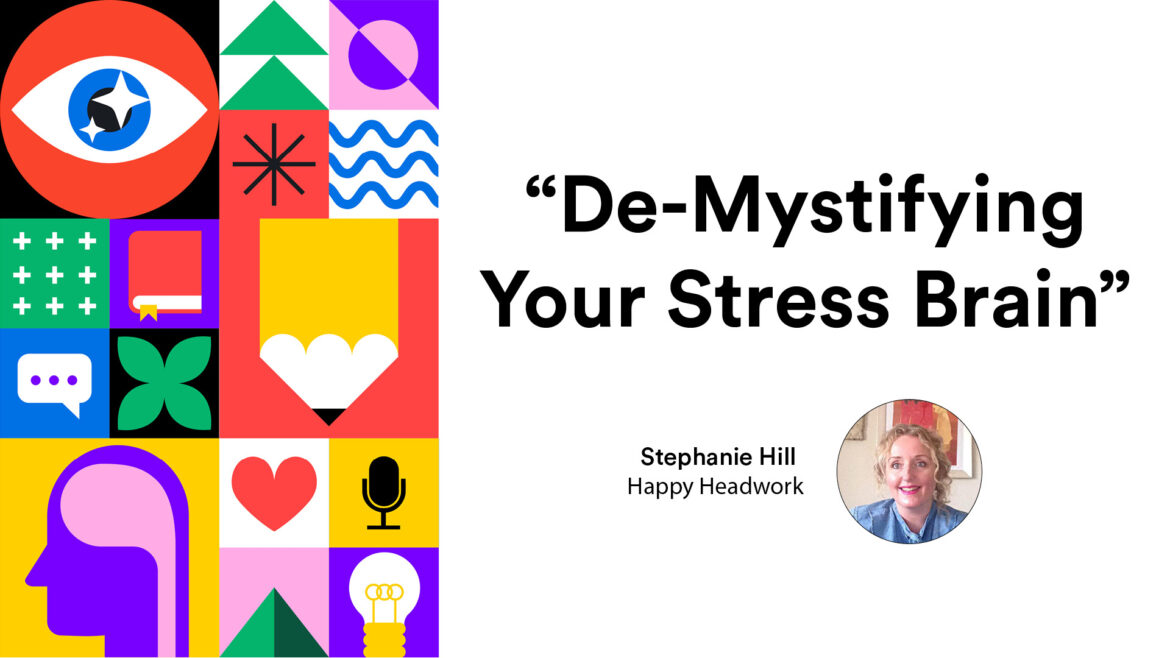
“We always say, ‘It’s ok not to be ok’, but how many of us actually really feel that it is?”
It doesn’t take a genius to say working in an agency can be stressful. Tight deadlines, tight budgets, unrealistic client expectations, office politics, Christmas campaigns in July. For most, this is just accepted as part of the deal. But are we as humans really equipped to manage such relentless levels of stress?
At this year’s Good Agencies Summit, Steph Hill – founder and director of Happy Headwork – will be joining us to run our first-ever stress management workshop.
Steph has worked internationally supporting organisations working in challenging environments with stress management. However she attributes her passion for supporting others to her own journey with mental health.
Her story begins in 2004. Steph was a psychology graduate travelling in Thailand with her partner when the 2004 Tsunami struck. She was very badly injured. While she survived, her partner didn’t.
Upon her return to the UK, Steph was diagnosed with PTSD. But when she sought help for her mental health struggles, she was told the only options were anti-depressants and a waiting list of at least 18 months. Neither option felt right for her.
Building on her Psychology degree, Steph went on to study different therapeutic approaches and a master’s degree, empowering herself to overcome PTSD and pursue a career in disaster management and sustainable development. Whilst working with international charities, she soon realised that colleagues working in extremely challenging environments were not getting the support they needed.
“I started to deliver some wellbeing training and people really benefited from it. I knew from my own journey how valuable it is to make sense of what happens in our own bodies and brains with stress and trauma – I wanted to give people meaningful and effective psychology that worked, rather than the tick-box stress management they had been getting,” she says.
This path eventually led her to founding Happy Headwork in 2016, bringing together a team of therapists, psychologists and nature-based practitioners to support wellbeing in the workplace, through training and therapeutic coaching.
(They now also have a Community Interest Company through which they deliver programmes to people experiencing challenges with their mental health in the wider community.)
“I know what desperate can feel like. So I always wanted to be able to give people the support that I didn’t get to empower people on their journey with the tools that helped me,” Steph says. “A little bit of neuro-science and psychology can go a long way with helping us move to a place where it feels safe to open up meaningful discussions and identify support.”
At Good Agencies, Steph’s workshop will focus on ‘demystifying’ stress in the body and brain, to help you understand how and where stress manifests in YOU. The session will close with some easy-to-use tips for regulating your stress response.
How Do You Balance Purpose and Profitability?
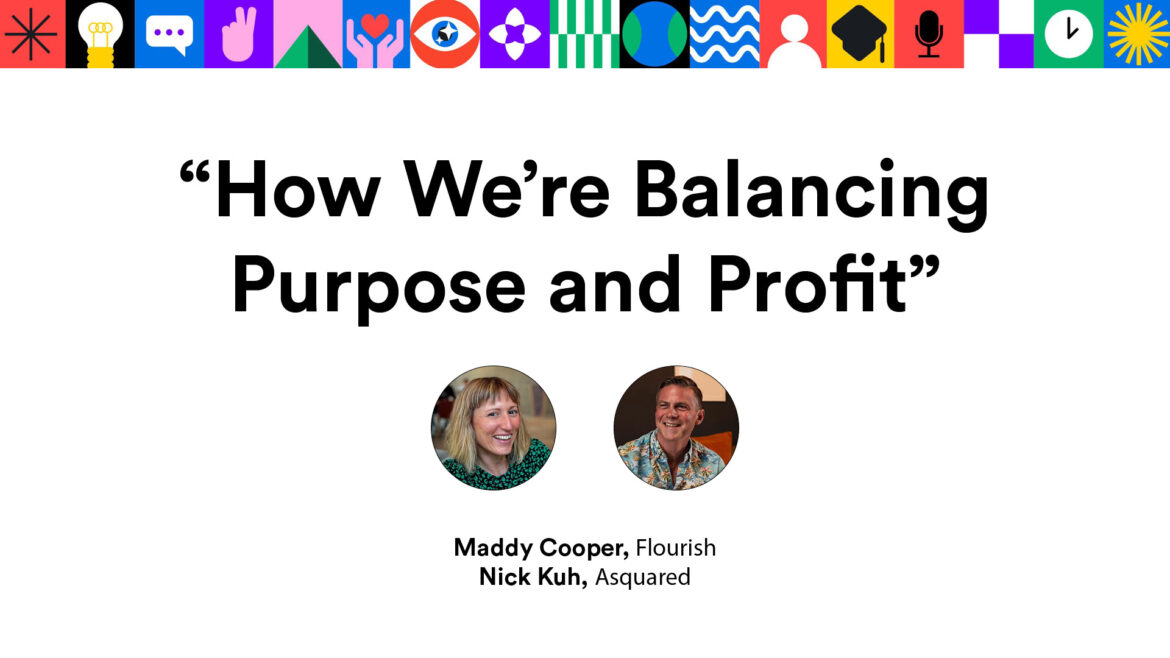
In an ideal world, it would be easy to prioritise your agency’s purpose. There’d be no obstacles, wages would pay themselves, and you’d have the stability to turn down clients who aren’t a good fit.
Unfortunately, 2023 has thrown more problems at independent businesses than we ever could have imagined. So this year, it’s seemed tougher than ever to keep true to the values you set when the horizon looked peachy.
“I know how incredibly stressful and difficult it is to navigate the commercial realities of an agency – particularly over the last five years. Every storm this year has hit small-ish agencies,” says Maddy Cooper, founder of Flourish.
Maddy has been in the agency game for 20+ years, so she knows the trials and tribulations of keeping the lights on. Her tactic for staying ahead of the game is to truly specialise – and target the right kinds of clients.
“I want to help the devilishly big corporations to do more good than harm,” she says. “If you look at the valuation increase of Unilever over the last 10 years, it’s 130%, whereas Nestle is only 70%, Patagonia is 150%, North Face is only 30%.”
“The sustainable businesses are growing – they are thriving in value. So my mission is to make those other corporations see the business case for aligning around the UN sustainability goals and accelerating their efforts.”
Nick Kuh, agency director at Asquared, has a slightly different approach. His agency is able to keep prices competitive for clients and maintain a profit by nurturing a happy, super-committed team.
And how does he keep them committed? By taking on the right projects. But even that is a tricky balancing act.
“We wanted to make sure that ASquared was a great place to work, and that we were working on great projects too. But to get there, we had to make some pretty scary decisions in order to prioritise people, planet and then profit,” Nick says.
“At the beginning of the year, we really went all in on working with five-star, impactful clients. But while that was a great ambition, it meant that the team began questioning every client that came through the door.”
Nick ended up having to modify the messaging around their client profiling. But after he’d explained the business-case to the team and the need for compromise in certain areas, they seemed to be on board.
“Our churn has completely disappeared. I actually can’t remember the last time somebody quit on us. It’s just such an awesome, humble team.”
In this breakout session, Maddy and Nick will be sharing the tough decision they’ve had to make to keep their agency purpose as a top priority – whilst making sure the business is still making money. If you’ve been struggling to juggle purpose and profit this year, come along to share your experiences and potentially pick up some tips!
How Can You Reduce Your Digital Footprint?
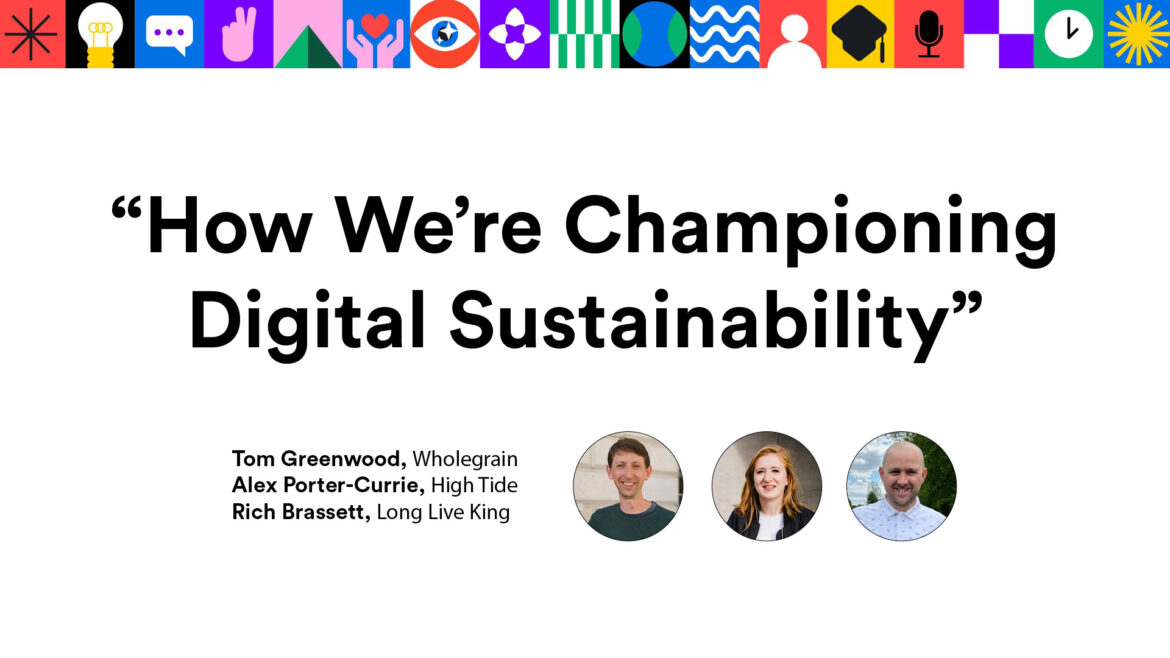
There’s a new phrase on the block: ‘digital sobriety’.
It refers to the idea of being mindful of your digital usage and remaining conscious of the environmental impact of digital technology. And it’s something Rich Brassett, co-founder of Long Live King, hopes to encourage other agencies to adopt.
“These massive data centres are being put together that consume such a huge amount of energy and resources to run, that they take up half of a town’s energy supply,” he says.
Rich says 3% of global emissions are based on the internet – which is a mammoth task to take on.
“But it trickles down to the way we consume digital. Obviously, we tackle the building stuff and make sure that everything we do is as small as physically possible. But there’s also the habitual stuff, where we stream tonnes of stuff and we have video calls all the time, emails going back and forth. At least 10% of it isn’t necessary.”
The internet is massive. A lot of people forget that it is a very real, physical thing. And as it gets bigger, so does the problem it poses.
In this breakout session, we’ll be talking to our panellists about the things agencies and individuals can be doing to reduce their digital footprint – from easy fixes like energy suppliers, to tackling bad digital habits. We’ll also discuss how the digital sustainability landscape has changed over the years, addressing the rise of AI and its potential effects.
Rich will be joined by Tom Greenwood, co-founder of Wholegrain Digital, and Alex Porter-Currie, co-founder of High Tide – who will be telling us how her agency is attempting to create positive change within the film industry.
How Transparent Should You Be?
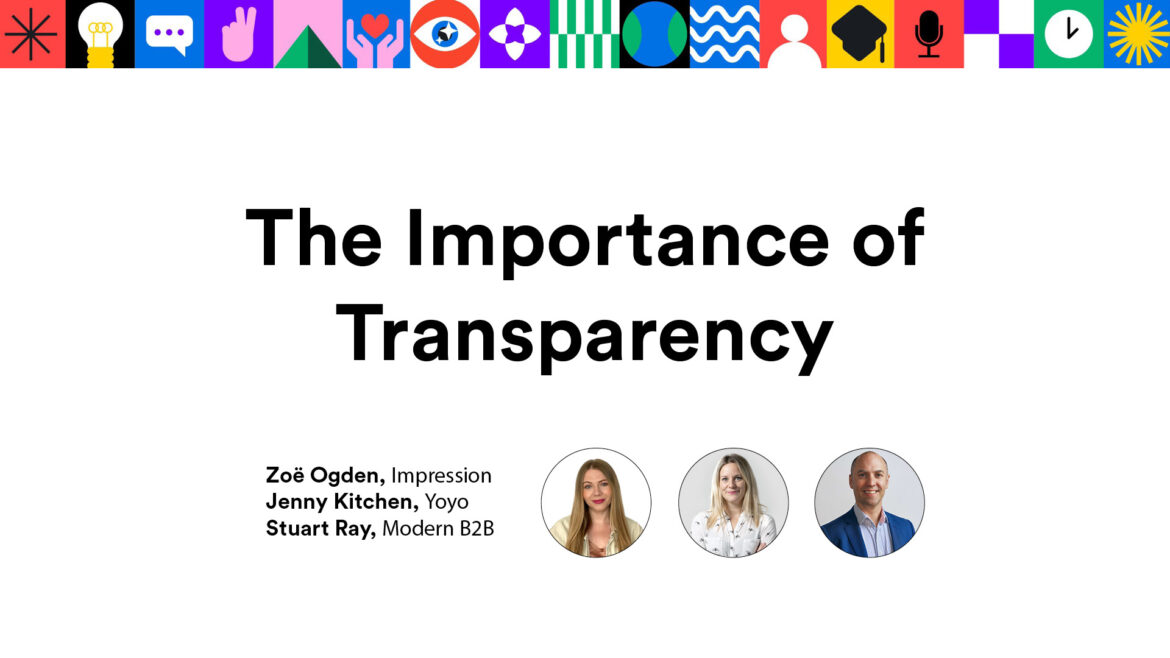
How transparent are you as a business? More and more agencies are beginning to bear all – from open salary bands to sharing data and slack channels with clients. Leaders quote all sorts of benefits:
- It builds trust with clients – the more you share, the tighter the bond, and the more you can manage expectations.
- Everyone is on the same page – this in turn leads to more informed decisions, as you’re taking into account everyone’s perspective.
- It increases team accountability – when you’re super transparent with internal processes, there are much fewer places to hide mistakes.
- It boosts your credibility – word spreads fast and referrals are everything in this game. The more transparent you are as an agency, the more reliable and credible you seem.
“We’ve even had candidates join us and take a slight pay cut on the basis that we’re so upfront and fair,” says Zoë Ogden, people director at Impression Digital.
But where’s the line? How much is too much?
We’ll be speaking to our agency panellists – Zoë Ogden, Jenny Kitchen and Stuart Ray – about how they champion transparency in their businesses, the impact it makes on teams and new biz – as well as the parameters they draw to make sure it doesn’t cause problems. Come along to hear how you can adopt similar transparency processes in your own business, and increase your chances of being a client’s (or a candidate’s) first choice.
